A sustainable event: RegenERA Local
Client: Client: Impact Hub Consulting
Agency: Impact Hub Events Agency
Offshored production: sustainable event in Santander
RegenERA Local is a hybrid event held in Santander with a large online audience that has shown how to boost the essence of the territories and co-creation to regenerate local economies through entrepreneurship.
Impact Hub's events agency has carried out an advisory, production and accompaniment work from June to November 2023, the date on which the event was held.
Objectives
- Proposal and design of the event together with Impact Hub's consulting area to obtain its public funding.
- Facilitation of face-to-face connections with the more than 50 local catalyst organizations
- Community building among the group to facilitate their further work in the local community
Actions developed
- Design and execution of the event together with Impact Hub's consulting area.
- Advice on the sustainability of the event
- Reception of the 200 participants in the event.
- Coordination of the event with the venue (Palacio de la Magdalena, Santander)
- Contact and coordination with the 15 local catering, technical and other service providers.
- Coordination with the foreign travel organizer and organization of logistics for the pick-up of the attendees.
- Hospitality for Impact Hub members, VIP guests and facilitators before and during the duration of the event
- Organization of dinners at local restaurants
- Use of reusable lanyards from other events
- Measurement and analysis of the event's footprint by ECODES
- Bridge between the technical part and the facilitators
Impact figures
- More than 50 local catalyst organizations
- 200 people participated on-site
- More than 600 virtual participants
- More than 40 speakers: 35% international, 65% women
- Enabling hackathon for ecosystem agents
- Net CO2 event, with maximum standards of sustainability, equity and accessibility. The event generated 13 tons of CO2, with air travel and accommodation being the actions that had the greatest impact (12 tons), as measured by ECODES. The footprint generated was offset by supporting the REDD+ project for the protection of the Mai Ndombe forest in the Democratic Republic of Congo.




